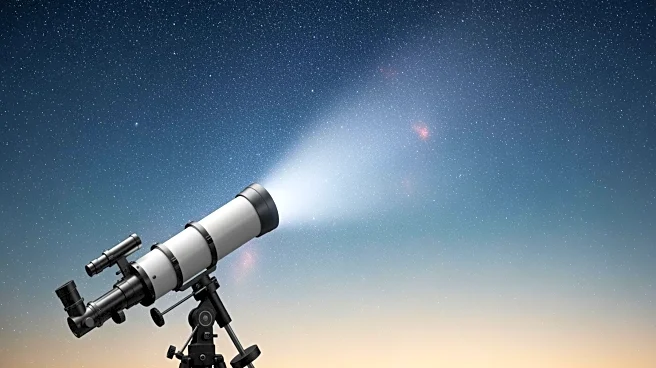What's Happening?
George F. Smoot, an esteemed American physicist and Nobel laureate, has died at the age of 80. Smoot was renowned for his work on the Cosmic Background Explorer (COBE) satellite, which provided evidence of the Big Bang by detecting temperature variations
in the cosmic microwave background. These variations revealed the primordial seeds that led to the formation of galaxies and galaxy clusters. Smoot's contributions to cosmology were pivotal in understanding the universe's origins, earning him a Nobel Prize in Physics in 2006. His work built upon the discoveries of Arno A. Penzias and Robert W. Wilson, who first identified the cosmic microwave background in 1964.
Why It's Important?
George F. Smoot's research has had a profound impact on the field of cosmology, providing crucial evidence for the Big Bang theory and enhancing our understanding of the universe's early development. His work on the COBE satellite helped map the distribution of cosmic matter, offering insights into the structure and evolution of the universe. Smoot's contributions have influenced generations of physicists and astronomers, shaping the study of cosmology and inspiring further exploration into the origins of the cosmos.
What's Next?
The legacy of George F. Smoot's work will continue to influence cosmological research, as scientists build upon his findings to explore the universe's origins and structure. Future missions and studies may further investigate the cosmic microwave background and its implications for understanding the universe's evolution. Smoot's contributions will remain a cornerstone of cosmological research, guiding new discoveries and advancements in the field.
Beyond the Headlines
Smoot's work not only advanced scientific understanding but also sparked philosophical and religious discussions about the nature of the universe and its beginnings. His findings have been described as akin to 'seeing God,' highlighting the intersection of science and spirituality in the quest to understand cosmic origins. The impact of his research extends beyond academia, influencing cultural and existential perspectives on the universe.

















